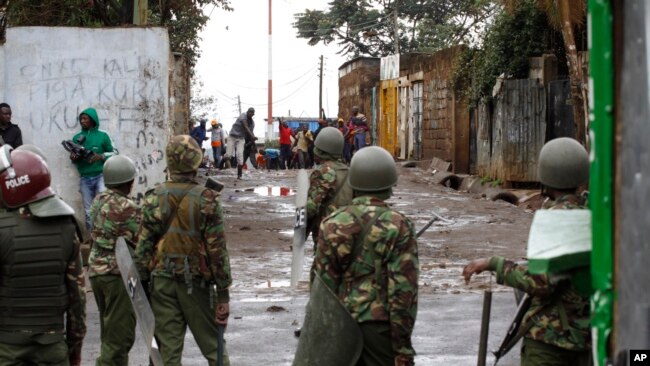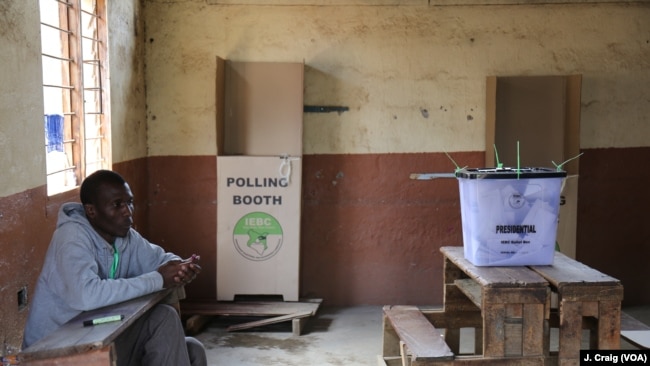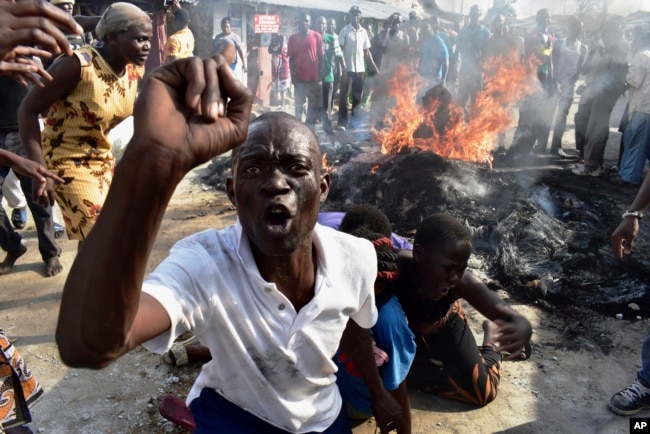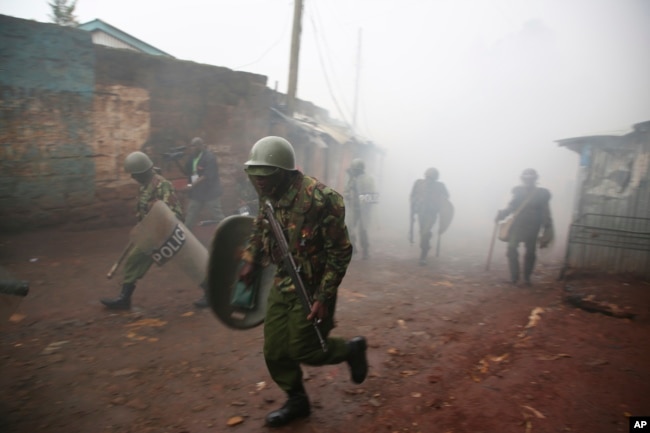Lower Voter Turnout, Clashes Mark Kenya’s Presidential Poll Re-run
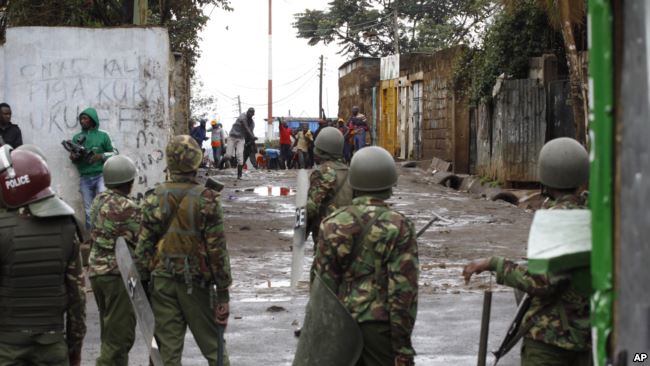
NAIROBI, KENYA —
Thursday’s repeat of Kenya’s presidential election has been marred by clashes between police and protesters, as well as unopened polling stations in opposition strongholds.
The re-run of Kenya’s presidential election went ahead Thursday despite opposition protests and violence at a number of polling stations. At least two people were shot dead during clashes between police and protesters.
Voter turnout appeared to be significantly lower than it was in the original August 8 poll. Jacob Maina cast his vote in Dagoretti, an area of Nairobi that is considered a ruling party stronghold.
“Things were good, actually, cool, but the people did not show up like last time,” he said.
A poll worker in Nairobi’s Mathare slum said that out of 656 registered voters at that location, only about 50 people came to vote between 6 am and 11 am Thursday. She said that during the August election, more than 200 voters cast ballots during the same period.
Incumbent President Uhuru Kenyatta is making his second attempt at re-election after the Supreme Court nullified his victory in the August 8 poll, citing “irregularities and illegalities” in the transmission of results.
Opposition leader Raila Odinga instructed his supporters to boycott this election, after his demands to re-start the electoral process and replace members of the electoral commission were turned down.
In Photos: Kenya Presidential election re-run
Kenyatta said Thursday that “90 percent of the country is calm, is peaceful, and is voting.” He also said the rights of both those who choose to vote and those who choose to boycott should be respected.
Kibera resident Silas Odwali Omuse used a football analogy to explain his decision not to vote.
“Where one team goes to play and the other one is not playing, then that one is not a match I can go and watch,” said Omuse. “That is why I avoided to participate.”
Frederick Mondi Otieno says he did not vote because his preferred candidate was not participating.
“There is no voting because there is no president to vote for,” said Otieno.
Unrest at polling stations
Although the majority of polling stations were peaceful, some were not. In the western city of Kisumu, an Odinga stronghold, many polling stations did not open for security concerns, with protesters setting up roadblocks and lighting fires. One man died from gunshot wounds and three others were wounded.
In the Nairobi slums of Kibera and Mathare, police fired tear gas and protesters threw rocks. One man was shot dead in Mathare.
Amnesty International said its researchers witnessed at least 12 young men in Kibera trying to block the entrance to a polling station, with police firing tear gas to disperse them.
And in the Mombasa slum of Bangladesh, youth smeared feces on the walls of a polling station and chased away election workers until order could be restored. The majority of Kenya’s coastal region was peaceful as of mid-afternoon Thursday.
Kenya’s electoral commission chairman, Wafula Chebukati, announced that polling stations unable to open for security concerns on Wednesday – in Homa Bay, Kisumu, Siaya, and Migori – would have elections postponed to Saturday, October 28.







